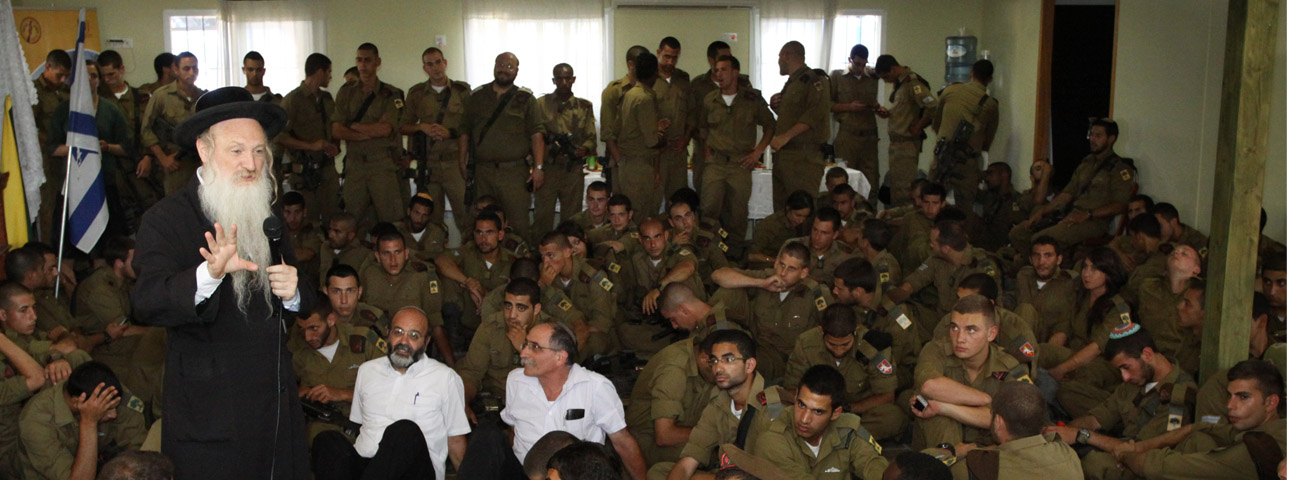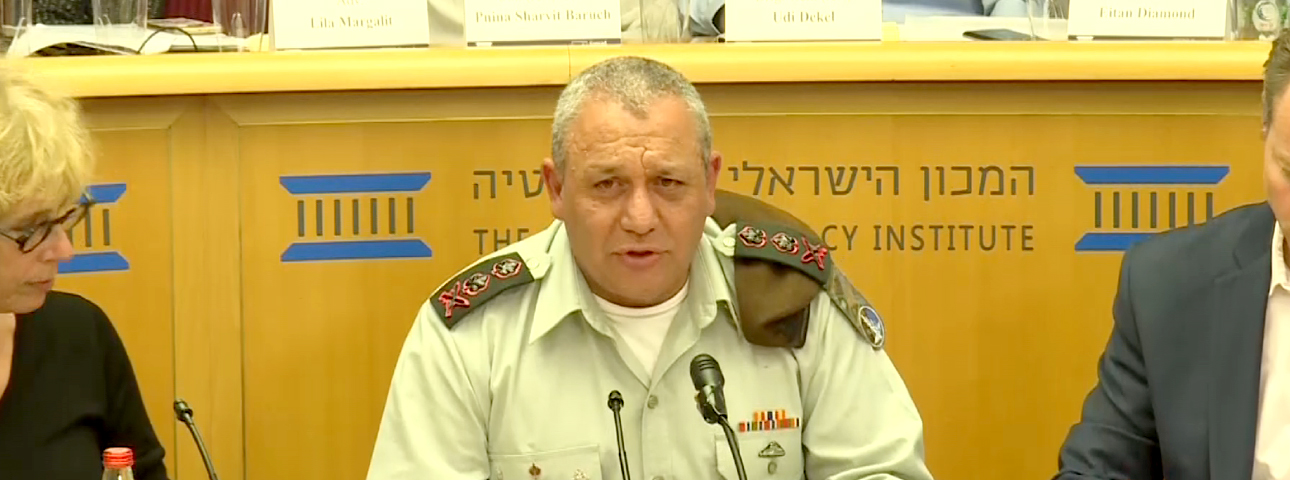Co-Ed Army Service in Israel

Co-ed army service in Israel is once again at the heart of public debate after some leading rabbis from the National Religious community spoke out against mixed-gender combat units and called on religious soldiers to refuse to serve.
Recently the IDF finally updated the Force Joint Service Order. Among the changes, the clause requiring soldiers to serve in co-ed combat units was not annulled, however, it was amended so that religious officers and noncommissioned officers may submit a request for transfer before their placement goes into effect.
Even though the order was updated, the public storm did not quiet down. Perhaps this is the reason behind comments by Lt.- Gen. Gadi Eisenkot, the chief of General Staff, about the future integration of women into combat units. Eisenkot was quoted as saying that as long as he retains command of the IDF, female fighters will not be drafted into any front-line infantry brigades.
It is interesting to note that the United States recently opened all units to women soldiers.
In addition, Eisenkot stressed that the IDF’s policy is not dictated by extreme feminist agendas. Whatever the precise wording was that he used, one thing was clear: Someone in the IDF felt the need to mollify the representatives of the National Religious community.
One might think that sending a calming message is not such a bad idea, especially if it allows the IDF to continue integrating women into its ranks without getting involved in public wrangles. Doubtless this was the chief of General Staff’s intention. But an understanding of the processes raises real concerns that we are far from reaching the end of this extended struggle.
The Joint Service Order came into effect one year ago and presented new rules for co-ed military service. Recently, in an attempt to change these, prominent National Religious rabbis fired shots in all directions, and there was almost no limit to their claims.
We heard that the IDF’s operational capabilities are being harmed; that women who serve won’t be able to give birth; that religious soldiers are being forced to act against their faith and their souls are being damaged. And the icing on the cake was the claim that the IDF is giving in to feminist organizations that seek to impose a radical gender agenda within its hallowed ranks.
Though the IDF has clarified that the Joint Service Order update, which regulates women’s army service with religious men, is now final, the opponents of integration have not ceased to express their opposition.

THE CALLS to fire the chief of General Staff for appointing the first female commander of a flight squadron, and the repeated calls of a leading, if radical, rabbi, Shlomo Aviner (head of the Ateret Yerushalayim Yeshiva in Jerusalem and rabbi of Beit El) to refuse to serve in integrated service frameworks, are just two examples of this.
Indeed, when the most far-fetched claims are made, it seems best to simply ignore them. After all, not every tweet from an MK or statement by a rabbi is worthy of a response, and free publicity is a valuable gift. And in any case, women are voting with their feet, and the number of religious women, who are marching straight into the IDF induction base has risen annually by 10% in recent years.
However, the danger is that ultimately, the rabbis’ war of attrition on gender equality in the military can deeply affect the atmosphere in which the military updates its orders. Thus, ignoring their claims is a privilege that none of us who care deeply about the character of the IDF can afford.

According to a recent survey conducted by the Israel Democracy Institute, most of the public opposes the rabbis’ recent proclamations: 55% agree with Defense Minister Avigdor Liberman, who admonished the rabbis who publicly opposed conscription for women; and 50.5% support the condemnation of the Safed municipal rabbi, who called for the chief of General Staff to resign over this issue (compared with 27% who did not support the condemnation).
Given these sentiments, it seems that the time has come for a broad public reaction against this sectoral pressure group whose influence over the IDF could slow down or even reverse important processes toward gender equality. In response to the line of rabbis beating a path to the chief of General Staff’s door, with the background accompaniment of extremist rabbinical proclamations, we need to sound a different tune.
Precisely because the IDF is the people’s army, it is time for the people to make its voice heard. It’s time that we hear from the many moderate rabbis and thinkers in the religious community and in Israeli society. It’s time for the people’s army to listen to the voice of the people, and not just to the voice of extremists.
